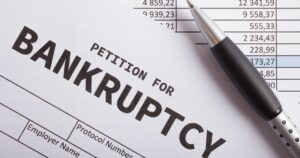If you are experiencing financial troubles, do not feel like you are out of options. Individuals may qualify to file for bankruptcy.
The question is: which chapter of bankruptcy is right for you? Here is a short, helpful guide on the different types of bankruptcy and what to expect with each one.
How to Decide Which Chapter of Bankruptcy to Declare
Our bankruptcy law team helps everyday people just like you file for bankruptcy in a variety of chapters, including Chapter 7, Chapter 11, and Chapter 13. Your circumstances and the type of debt you have both play roles in the best chapter of bankruptcy to declare.
Here is how to tell which form of bankruptcy you should file for:
When to Choose Chapter 7 Bankruptcy
Chapter 7 bankruptcy wipes out any unsecured debt, such as credit card debt. It does not include debt that you owe to a governmental agency or student loan program. In addition, any child support obligations, alimony, or criminal fines will usually remain intact, meaning that you will still need to pay them.
When should you choose Chapter 7 bankruptcy? Consider it in the following situations:
- You are having trouble staying up to date with payments and want to pay off any debt that you can—even if that means losing your property.
- You do not think a payment plan will work as you are hardly making ends meet now and lack the extra income to settle your debts (even at the bare minimum).
- Your income is lower than your state and county’s median income.
When to Choose Chapter 11 Bankruptcy
Chapter 11 bankruptcy is common for businesses as it gets rid of debt without affecting your assets. It is also suitable for individuals in some cases—specifically when you have a high amount of debt and do not qualify for other chapters.
Consider Chapter 11 bankruptcy if any of the following fits your circumstances:
- You are interested in restructuring your debts, and you do not qualify for Chapter 13 bankruptcy.
- You have significant debt and want to work out a plan to pay it back over time.
- You want the option to sell property or assets to put the money toward your debt repayment if you so choose.
When to Choose Chapter 13 Bankruptcy
Chapter 13 bankruptcy means a three to five-year repayment plan. While your unsecured debts will remain, you will work with the court to set up a plan to take care of the debts over a designated period. You will pay a bankruptcy trustee a set amount each month, and they will disperse that amount accordingly to creditors.
This chapter is for you if:
- You have high debts, including from mortgage and vehicles, and you would like to arrange a better plan for repayment.
- You are struggling to stay afloat with all debts, including spousal maintenance, child support, fines, student loans, taxes, and more.
- You would like to prevent your assets, such as your car and home, from foreclosure or repossession.
Conclusion
What are the main differences between Chapters 7, 11, and 13 bankruptcy? It comes down to the type of debt, your average income, whether you are okay with releasing your assets to cover your debts, and if you would like to work out a debt repayment plan.

